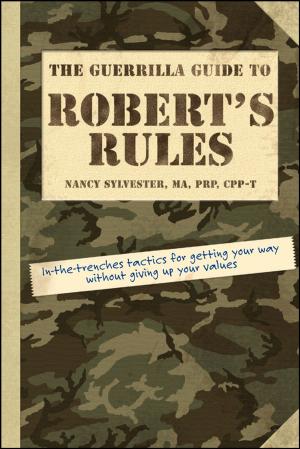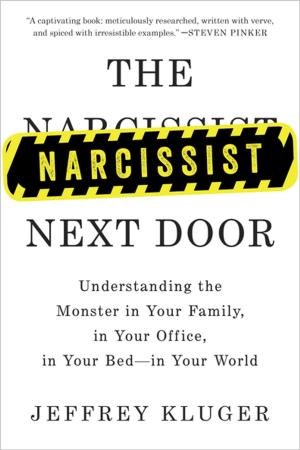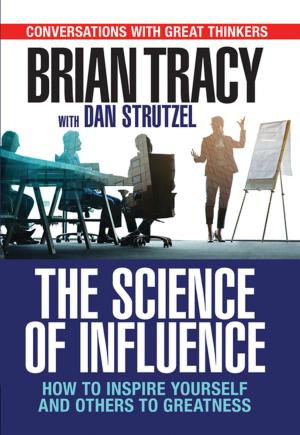Think Well & Prosper
A Critical Thinking Guide
Nonfiction, Health & Well Being, Self Help, Self Improvement, Success| Author: | Steve Bareham | ISBN: | 9780973113754 |
| Publisher: | Summa Publishing | Publication: | June 29, 2012 |
| Imprint: | Language: | English |
| Author: | Steve Bareham |
| ISBN: | 9780973113754 |
| Publisher: | Summa Publishing |
| Publication: | June 29, 2012 |
| Imprint: | |
| Language: | English |
Few people devote time to think about, or to improve, their thinking processes, preferring, instead, to focus on outcomes—decisions, plans, conclusions, and judgments—that so preoccupy the North American psyche. This fixation on the latter stages of thinking is backwards and responsible, in large part, for results that are not always optimal. Think Well & Prosper provides insights into the structure of thinking. It breaks down—analyses—the thinking process into understandable steps and sequences that each of us can easily follow if we so choose. And the steps and sequences aren’t particularly complicated. The trouble with thinking better is simply that most people don’t really know what is involved to do it more effectively. Many people think thinking just happens organically and that we can do it better by bearing down or by thinking harder (whatever that means). A very important point, right from the start: thinking is not the same as intelligence. Thinking well is a skill that can be learned, practiced, and improved. It’s comparable to getting your body in shape. No one doubts that physical conditioning requires time to learn routines; it’s the same with thinking, except they are mental routines. But, if you don’t know what you don’t know, you can’t really do them. Many of us learn the thinking processes and routines as we progress through life, or if we pursue higher education where educators nudge us to develop higher order thinking skills. But, why wait until later, if obtaining these skills sooner will help now? Readers can quickly learn how: • the thought process works when it’s well managed (and when it’s not) • improved understanding of our thinking sequence/process brings about much improved outcomes that benefit us in all walks of life • to systematically audit your thinking to ensure that none of the components of higher order thinking are overlooked and that exploration of the parts is comprehensive and done conscientiously to produce detailed analysis, coherent synthesis, defensible reasoning, logical inference, creativity, sound judgment, constructiveness, and connectiveness • to employ personal candor about psychological landmines that often derail us • to ask better questions; our brains are questioning machines, but we often ask questions subconsciously and without critical analysis of their depth or quality. You’ll learn that there are six levels to question sophistication so you can ask better questions routinely. Einstein said questioning skills were the secret to his success. • memory works and how to make yours better • to make better plans, decisions, and judgments (and do these better AFTER employing the thinking “parts” in the right sequence • to create a strategic life plan using a process similar to that employed by successful corporations (works for life, too!) • to be more persuasive by expanding your persuasion arsenal with 21 specific tactics and strategies (this is hugely beneficial) • organizational patterns can improve your communication power Thinking is the most important thing we do in life. Our thinking determines our levels of competency in the work world and, to a great degree, the way we think determines if we succeed or fail in life, or if we are happy and fulfilled, or frustrated and overwhelmed. Many people equate thinking with breathing; they do it, but assume it’s a natural process and not something that can be orchestrated or deliberately structured. Rather than questioning the adequacy of specific thinking skills and approaches in challenging situations, many people believe that they face difficulty simply because they lack information. It is very often true that more information is needed, but making better use of information is just as important.
Few people devote time to think about, or to improve, their thinking processes, preferring, instead, to focus on outcomes—decisions, plans, conclusions, and judgments—that so preoccupy the North American psyche. This fixation on the latter stages of thinking is backwards and responsible, in large part, for results that are not always optimal. Think Well & Prosper provides insights into the structure of thinking. It breaks down—analyses—the thinking process into understandable steps and sequences that each of us can easily follow if we so choose. And the steps and sequences aren’t particularly complicated. The trouble with thinking better is simply that most people don’t really know what is involved to do it more effectively. Many people think thinking just happens organically and that we can do it better by bearing down or by thinking harder (whatever that means). A very important point, right from the start: thinking is not the same as intelligence. Thinking well is a skill that can be learned, practiced, and improved. It’s comparable to getting your body in shape. No one doubts that physical conditioning requires time to learn routines; it’s the same with thinking, except they are mental routines. But, if you don’t know what you don’t know, you can’t really do them. Many of us learn the thinking processes and routines as we progress through life, or if we pursue higher education where educators nudge us to develop higher order thinking skills. But, why wait until later, if obtaining these skills sooner will help now? Readers can quickly learn how: • the thought process works when it’s well managed (and when it’s not) • improved understanding of our thinking sequence/process brings about much improved outcomes that benefit us in all walks of life • to systematically audit your thinking to ensure that none of the components of higher order thinking are overlooked and that exploration of the parts is comprehensive and done conscientiously to produce detailed analysis, coherent synthesis, defensible reasoning, logical inference, creativity, sound judgment, constructiveness, and connectiveness • to employ personal candor about psychological landmines that often derail us • to ask better questions; our brains are questioning machines, but we often ask questions subconsciously and without critical analysis of their depth or quality. You’ll learn that there are six levels to question sophistication so you can ask better questions routinely. Einstein said questioning skills were the secret to his success. • memory works and how to make yours better • to make better plans, decisions, and judgments (and do these better AFTER employing the thinking “parts” in the right sequence • to create a strategic life plan using a process similar to that employed by successful corporations (works for life, too!) • to be more persuasive by expanding your persuasion arsenal with 21 specific tactics and strategies (this is hugely beneficial) • organizational patterns can improve your communication power Thinking is the most important thing we do in life. Our thinking determines our levels of competency in the work world and, to a great degree, the way we think determines if we succeed or fail in life, or if we are happy and fulfilled, or frustrated and overwhelmed. Many people equate thinking with breathing; they do it, but assume it’s a natural process and not something that can be orchestrated or deliberately structured. Rather than questioning the adequacy of specific thinking skills and approaches in challenging situations, many people believe that they face difficulty simply because they lack information. It is very often true that more information is needed, but making better use of information is just as important.















